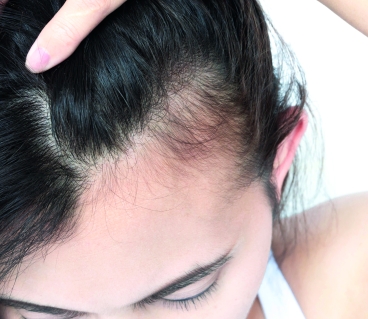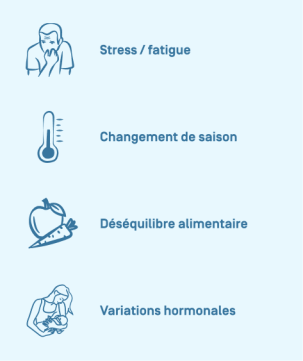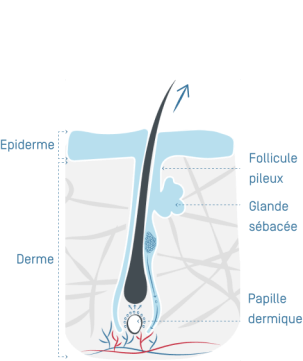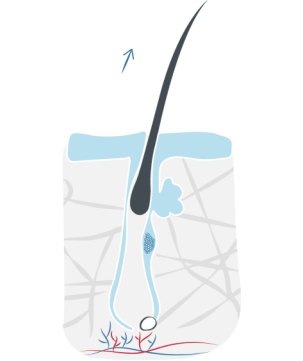How to care for your hair when you suffer from acute hair loss?

Hair is born in the scalp’s hair follicles. These follicles have a cyclical life rhythm, with alternating phases of hair growth (from 3 to 6 years) and phases of hair loss (from 2 to 3 months). Follicles will not necessarily be at the same stage in this cycle as neighboring follicles, which is why daily hair loss is normal. Certain factors can have a negative influence on the hair life cycle and abruptly stop the growth phase. Acute hair loss is when the number of strands of hair lost per day temporarily increases. This hair loss is reversible, but it is important to adopt a few habits to avoid making it worse and to keep your hair healthy.
4 simple daily rituals
Care for your hair
gently
Why?
To avoid damaging hair and to preserve scalp health
How?
- Use a mild shampoo suitable for frequent use
- Avoid brushing too vigorously, hairstyles that are too tight and harsh
Massage
the scalpe
Why?
To stimulate blood circulation in the scalp
This promotes the supply of oxygen and nutrients necessary for healthy hair growthHow?
Massage your scalp in circular movements with your fingertips positioned on the top of your head
Continue for a few seconds at the temples, then slide your fingers behind your ears
Finish the massage by pressing gently on the nape of the neck
Avoid
heat
Why?
It will weaken your hair
Heat can cause the water in the hair to evaporate too quickly, which can lead to breakageHow?
Do not use your hairdryer on a very hot heat setting or too close to your head
Avoid perms under helmet hairdryers
Eat
a healthy and balanced diet
Why?
To keep your hair healthy
Diet plays a key role in hair healthHow?
Opt for a diet rich in vitamins and trace elements
Take a food supplement if necessary
Related products
Doctor's stamp
Want to read on?
This access is reserved for professionals, registered on Pierre Fabre For Med.
To access the full content, please register or log in if you already have an account.



